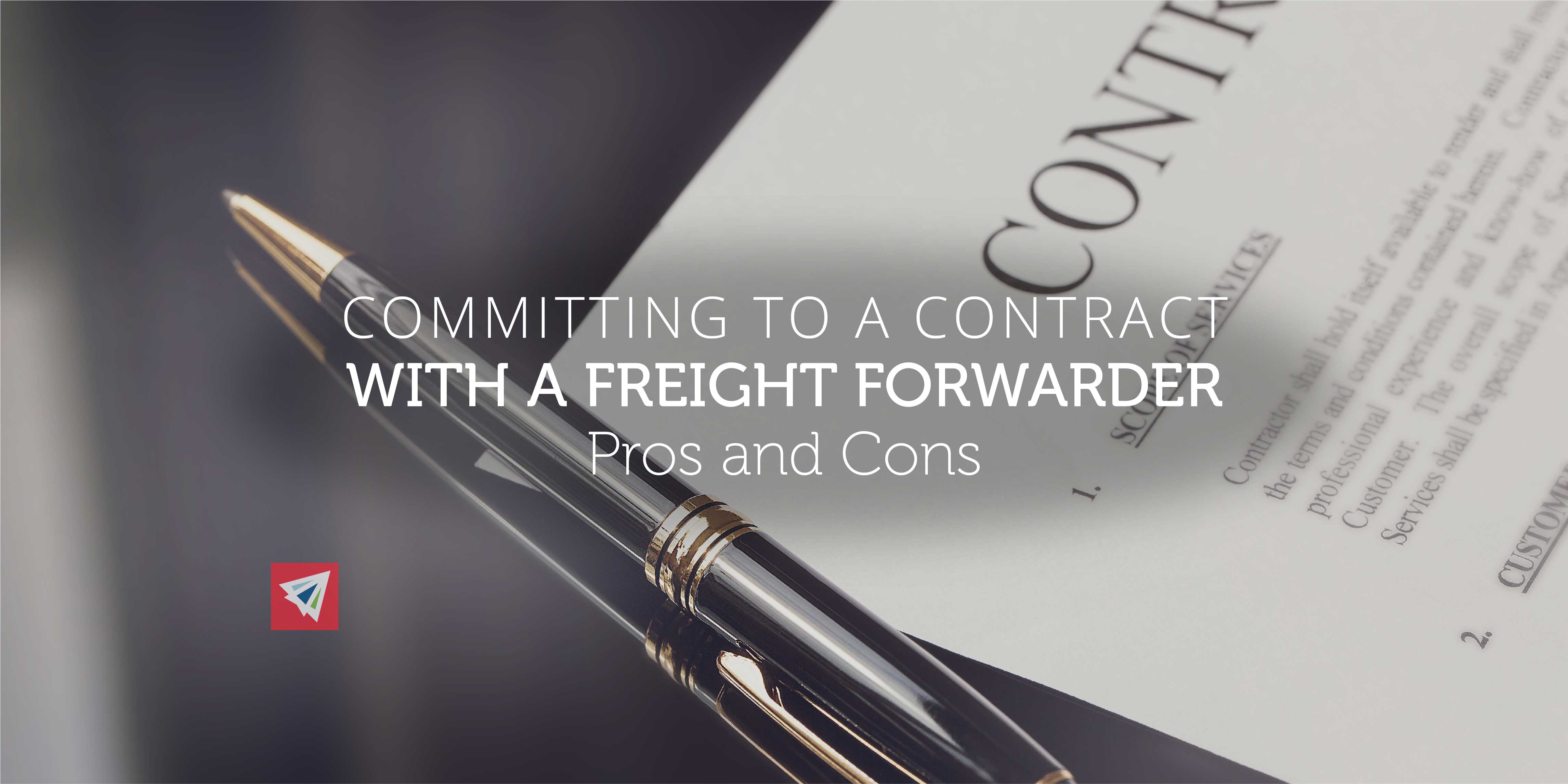Nothing is quite as irritating as subjecting yourself to the volatility of rates in the transportation market when they are not behaving in your favor. Changes in the price of fuel and busy seasons can all contribute to quickly changing prices and unfavorable outcomes.
Committing to a Contract with a Freight Forwarder: Pros and Cons
Some have attempted to mitigate their risk by locking themselves into a contract with a freight forwarder – essentially guaranteeing a specific rate for the contract period. But rates are not always a protective measure. In fact, the action may mean locking yourself into a very bad deal. It all comes down to the volatility of a few factors:
Fuel Surcharges
Fuel surcharges remain relatively stable along some of the most common lanes, however, price fluctuations still exist. Shipping on less common lanes (such as U.S. to Hawaii or Alaska) may warrant hefty volatility in fuel surcharges, and for companies who move frequently along these lanes, locking into a contract with fixed fuel costs may appear attractive.
Unfortunately, there is not much that can be done by a shipper to predict the direction and extremity of fuel surcharges, and thus they represent a primary reason for customers choosing to sign into a contract with a freight forwarder. Remember that you will always assume some degree of risk in regards to fuel surcharges.
Peak Season Surcharges
Peak season surcharges when carriers are nearing a capacity crunch. As the demand for shipments rises, space on different vessels decreases greatly which presents a prime opportunity for a carrier to institute a peak season surcharge. These surcharges may be initiated at any time and can account for some heft differences in rates.
Without a contract, our first recommendation is to make sure you are ahead of the game with planning and scheduling your shipments. Grabbing space on vessels as soon as you know you will need it is a surefire way to avoid the capacity crunch as demand rises drastically. Peak season surcharges are amongst some of the most common reasons that shippers commit to a contract with a forwarder, however, these contracts can affect shippers negatively when the peak season is done.
General Rate Increases (GRI’s)
General Rate Increases are applied by shipping lines on occasion when the volume of shipments along a particular lane increases dramatically. They may be issued at any time and can cause for serious price fluctuations. GRI’s are also a large cause for volatility of rate pricing, and they can often blindside shippers who do not get their containers along a lane before the GRI is issued.
The above are the three most common reasons for fluctuations and volatility in rate pricing. Before hastily assuming that locking yourself into a contract with a forwarder is the solution to fixing the issue, it’s important to understand what the pros and cons of contracts are.
Contract with a Freight Forwarder: Pros
As stated prior, agreeing to a contract with your forwarder can warrant a few positive outcomes. First of all, the majority of shippers who commit to a contract do so for the sake of mitigating their risk. At its core, the purpose of a contract is to eliminate concern over the volatility of pricing and GRI’s. This is one of a couple benefits. Another strength of contracts is business relationship development. Although it may seem to be the last of your concerns, locking into a contract with a particular forwarder requires you to communicate solely with them and develop stronger business relationships with the forwarder. Let’s talk about a few of the drawbacks to contracts.
Contract with a Freight Forwarder: Cons
Not to show our hand to everyone, but for every benefit of signing into a contract there are a multitude of issues. Keep in mind that freight forwarders never want to issue a contract that will negatively affect their business. There goal is always to make a profit from the contracts they issue, and so it is incredibly important to do your own research to better understand fuel price volatility and peak seasons. While locking into a contract may mitigate volatility, you are also subjecting yourself to missing rewarding below-benchmark rates – many of which could be proposed by competing forwarders during your contract period.
In any case, understanding what causes for major changes in your rates is important for making a decision as to who you will work with and what type of terms you will operate on. Having a contract with a freight forwarder can help to mitigate risk, but they often lead to missed opportunities and valuable relationships with other forwarders. At the end of the day, only you can make the decision of what is right for you and your company.

This is very informative. Great job highlighting the pros and cons of freight forwarding. Thanks for sharing this!